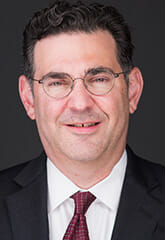
A top leader at the Centers for Medicare & Medicaid Services says the agency is going to more closely monitor and inspect hospitals with high COVID-19 transmission rates following a spike in 2022.
The new emphasis follows months of intense federal scrutiny of nursing homes, during which regulators and public officials have singled out the sector for major reforms. The hospital-oriented comments made last week by Jon Blum, principal deputy administrator and COO for CMS, indicate the agency is widening its enforcement lens.
“We are holding the health system accountable,” Blum told Politico Wednesday, in an interview covering the agency’s inspection process for hospitals, which relaunched about a year ago with increased oversight. “We do not see ourselves as simply putting out rules and hoping the health care system responds to those rules.”
“We have really pivoted to a world where we are going to be surveying and holding facilities compliant,” he added.
That talk about tougher surveys could be an ominous sign for nursing homes. President Biden asked for an additional $500 million for nursing home inspections in the nursing home reform package he unveiled in late February.
In the meantime, Blum said CMS would shift its hospital emphasis to buildings affected by COVID outbreaks and those with patient and health worker safety complaints.
Nursing home industry leaders have questioned the idea of beefing up enforcement without budgeting additional funding needed to support staffing minimums and other quality improvements.
Others in the skilled nursing sector have called for a more educational and collaborative survey process. They hope for a system that more closely aligns with practices of the Joint Commission, which is responsible for surveying many of the nation’s hospitals for CMS.
But Blum’s comments seemed to indicate that his agency is looking to wrest back some of that oversight in light of the pandemic’s lingering effects.
“We will dedicate survey resources toward where we see risk, where we see outbreak … [and] where we have allegations of noncompliance,” he told Politico.



